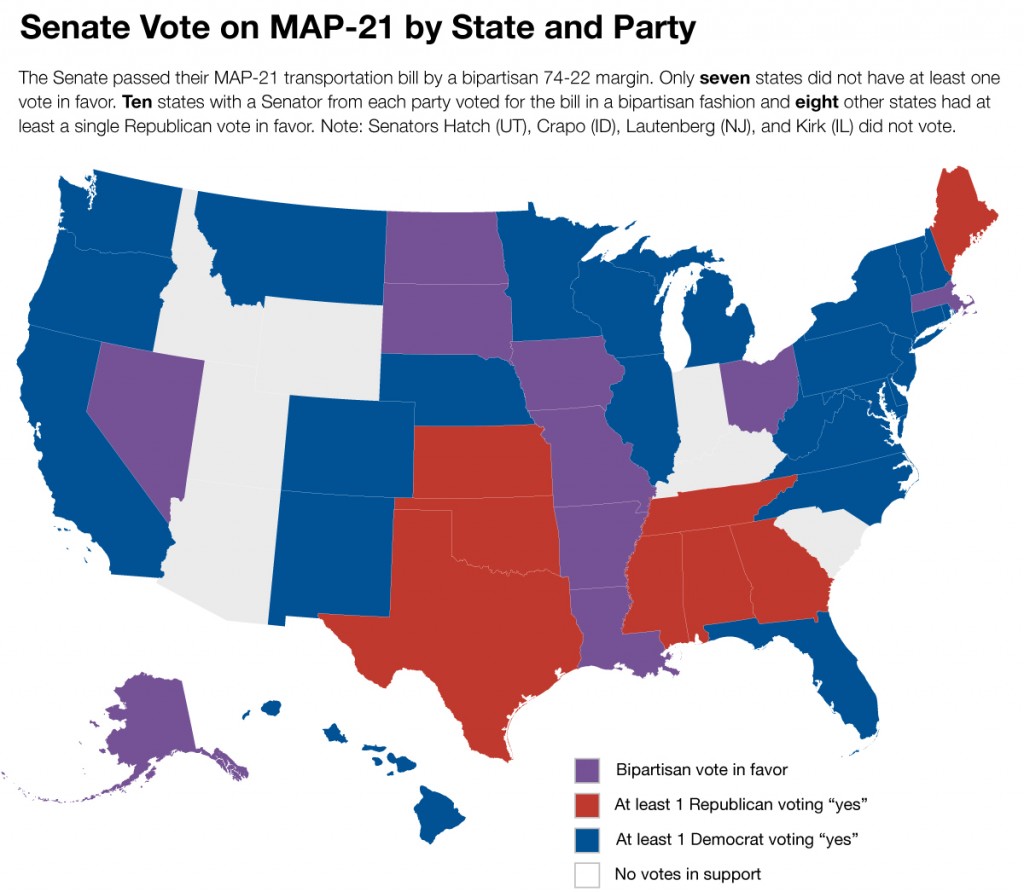
Graphic: A closer look at the Senate MAP-21 vote by state
As this map and graphic below amply demonstrates, the Senate’s transportation bill not only was developed with bipartisan input and adopted with votes from both parties, but it garnered support from every region of the country and from the reddest of “red” states — Georgia, Alabama, Texas, Oklahoma — and the bluest of blue — California, New York — as well many others that trend purple. Click to enlarge.
This is a noteworthy accomplishment in this Congress, and one that House leaders should take note of before dismissing HR 14 out of hand. (HR 14 is identical to the Senate’s MAP-21, and is before the House right now.)
No one is saying the House shouldn’t debate its own amendments to the Senate bill. Indeed, there are several areas we would like to see strengthened. But with the clock ticking, construction machines idling and Americans looking to get to work, the Senate bill’s bipartisan provisions form a strong base for a House debate.
That was exactly the message contained in this bipartisan letter (pdf) sent to House leadership just this week by Rep. Dold (R-IL) and Rep. Blumenauer (D-OR) and signed by Reps. Biggert (R-IL), Quigley (D-IL), Charles Bass (R-NH) and Larsen (D-WA).
“With funding for transportation and infrastructure projects expiring at the end of the week, it is critical that we act as soon as possible to provide certainty in the transportation and infrastructure sector that employs so many Americans,” said Rep. Robert Dold (R-IL-10). “I firmly believe transportation is a bipartisan priority that extends beyond partisan politics- that is why I am urging the House to consider the bipartisan Senate bill if it cannot bring a viable longer-term bill to the House floor by the March 31 expiration. We must reach a bipartisan consensus now to ensure that local transportation agencies can better plan for the future, and so that these important projects and jobs can continue.”
Would we, like the House members who signed this letter, prefer a longer bill, in an ideal world? Yes, if it had the right policies and an appropriate source of revenue.
However, with the time available, and in an election year where every vote is a litmus test, an attack ad waiting to happen or a political message of some kind, the Senate is offering a sound path forward that everyone should be able to live with now, and build from in the future.
Relatedly, we have completed a long and detailed summary of everything we know about the Senate’s MAP-21 bill, which you can download in its entirety here. (pdf)




